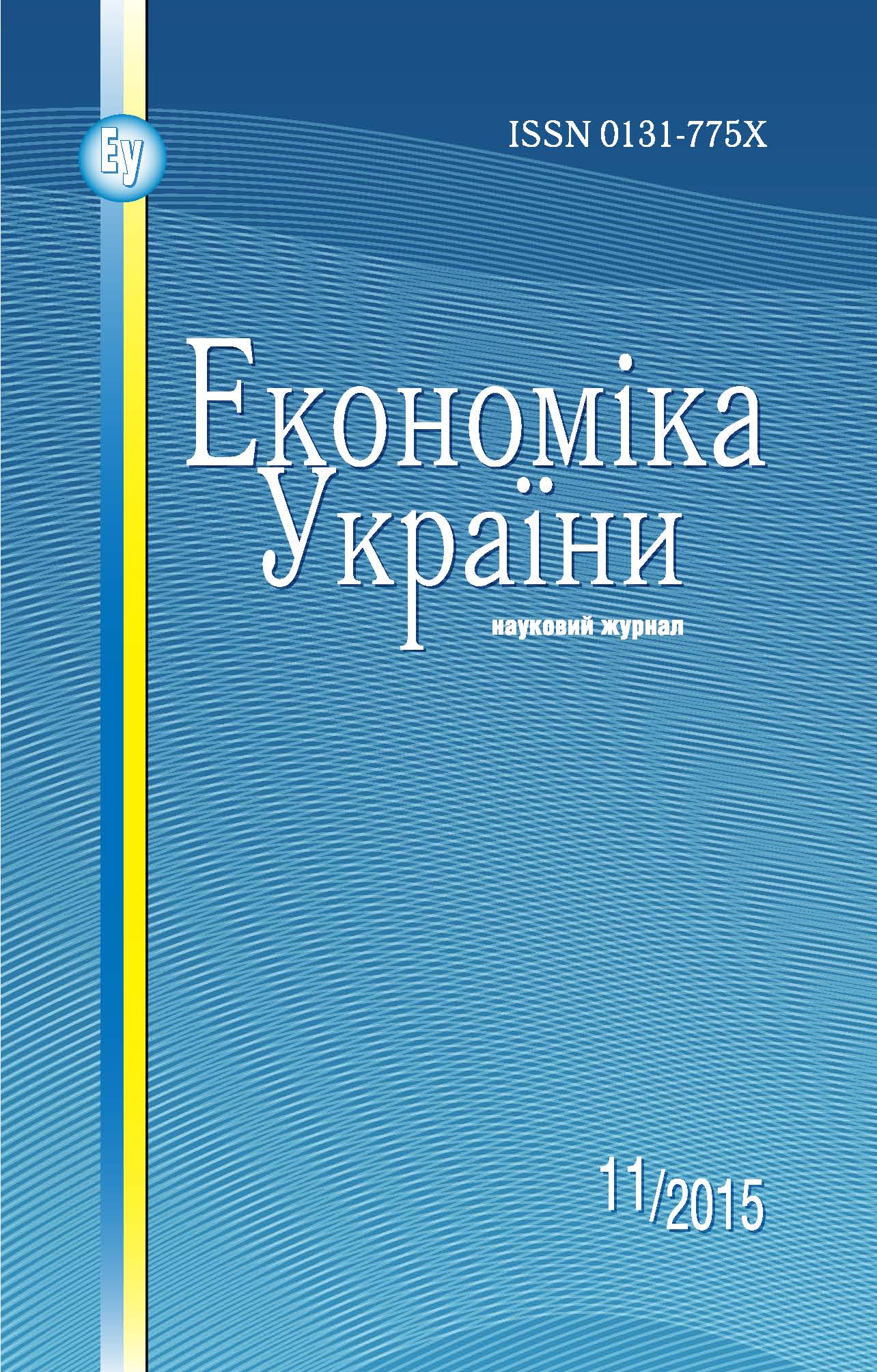БЮДЖЕТНО-ФІНАНСОВІ НАСЛІДКИ ІНТЕГРАЦІЇ УКРАЇНИ В ЄС
Ключові слова:
бюджет, фінанси, інтеграція, Україна, ЄСАнотація
Аналізуються наслідки п’яти імовірних форм відносин між Україною та ЄС для сектору державних фінансів України. Зокрема, розглядаються такі варіанти розвитку відносин: відмова від поглибленої співпраці; виконання положень Угоди про асоціацію між Україною та ЄС; одержання від ЄС статусу кандидата; відносини у форматі, типовому для країн ЄАВТ; членство в ЄС. Кожен з форматів відносин матиме як позитивні, так і негативні бюджетно-фінансові наслідки. Головні переваги проявлятимуться у тому, що в разі поглиблення двосторонніх відносин розширюватимуться можливості участі нашої держави у програмах і агентствах ЄС та зростатиме економічна база оподаткування у довгостроковому періоді. Негативними моментами будуть витрати, пов’язані з необхідністю адаптації до стандартів ЄС та сплати внесків за участь у програмах ЄС, а також скорочення економічної бази оподаткування у короткостроковому періоді. За співвідношенням витрат (втрат) і здобутків виключно у сфері державних фінансів у короткостроковому періоді та за інших рівних умов збереження статус-кво у відносинах України з ЄС виглядає дещо привабливішим, ніж відносини у форматі Угоди про асоціацію між Україною та ЄС. Проте у довгостроковому періоді ситуація полярно зміниться. Повноправне членство України в ЄС стане вигідним з позиції державних фінансів, якщо наша країна на момент вступу відставатиме від ЄС за такими показниками, як ВНД на душу населення та частка неаграрних секторів в економіці. Проте істотне відставання за цими показниками означатиме неприйнятність перспектив членства України в ЄС з боку самого Союзу. Якщо ж буде досягнуто певної паритетності з відповідними показниками ЄС або складуться несприятливі політичні обставини, то слід розглядати альтернативні до членства шляхи подальшого євроінтеграційного поступу, зокрема, формат відносин країн ЄАВТ з ЄС.
Посилання
Boiar A.O. Byudzhetnyi Protses u Evropeis’komu Soyuzi [The Budget Process in EU]. Luts’k, Vezha-Druk, 2012 [in Ukrainian].
Bulgakova S.O. et al. Budzhetna Systema Ukrainy ta Evropeis’kogo Soyuzu, za red. A.A. Mazaraki [Budgetary Systems of Ukraine and EU], edited by A.A. Mazaraki. Kyiv, KNTEU, 2010 [in Ukrainian].
Burakovs’kyi I. et al. Doslidzhennya Ekonomichnykh Peredumov ta Otsinka Mozhlyvykh Naslidkiv Stvorennya Zony Vil’noi Torgivli mizh Ukrainoyu ta ES [Study of Economic Preconditions and Estimate of Possible Consequences of the Formation of a Free Trade Zone between Ukraine and EU]. Kyiv, Inst. of Econ. Studies and Polit. Consult., 2006, 89 p. [in Ukrainian].
Boiar A.O. Napryamy transformatsii byudzhetnoi systemy Ukrainy v umovakh evropeis’koi integratsii [Directions of transformation of Ukraine’s budget system under conditions of the European integration]. Naukovi Pratsi NDFI Akad. Finans. Uprav. Minist. Finans. Ukrainy – Sci. Works of SRFI of Acad. Financ. Manag. of Ministry of Finan. of Ukraine, 2012, Iss. 3 (60), pp. 134–137 [in Ukrainian].
Council Regulation (EC, Euratom) of 25 June 2002 No 1605/2002 on the Financial Regulation applicable to the general budget of the European Communities. Offic. J. of the Europ. Comm., September 16, 2002, L. 248, pp. 1–48.
Betlii O., Ryzhenkov M., Kravchuk K. et al. Ekonomichna Skladova Ugody pro Asotsiatsiyu mizh Ukrainoyu ta ES: Naslidky dlya Biznesu, Naselennya ta Derzhavnogo Upravlinnya, za red. I. Burakovs’kogo ta V. Movchan [Economic Component of the Ukraine – EU Association Agreement: Consequences for Business, Population, and Public Administration], edited by I. Burakovs’kyi, V. Movchan. Kyiv, Al’fa-Pik, 2014 [in Ukrainian].
Prytula T.M. Do pytannya monitoryngu struktury ta dynamiky byudzhetu ES: statystychnyi pidkhid [To the question of a monitoring of the structure and the dynamics of EU: statistical approach]. Ekon. ta Derzh. – Econ. and State, 2010, No. 4, pp. 90–93 [in Ukrainian].
Pindyck R.S., Rubinfeld D.L. Econometric Models and Economic Forecasts. New York, Irwin/McGraw-Hill, 1998.
Eleiko V.I. Modelyuvannya Zv’yazkiv v Ekonomitsi za Dopomogoyu Regressiinogo Analizu: navch. posib. [Modeling of Connections in the Economy with the Help of Regression Analysis]. Kyiv, UMK VO, 1990 [in Ukrainian].
Boiar A.O. Transformatsiya Byudzhetnoi Modeli ES v Umovakh Global’noi Finansovoi Turbulentnosti [Transformation of the Budgetary Model of EU under Conditions of the Global Financial Turbulence]. Luts’k, Vezha-Druk, 2014 [in Ukrainian].
##submission.downloads##
Опубліковано
Як цитувати
Номер
Розділ
Ліцензія
Авторське право (c) 2024 Економіка України

Ця робота ліцензується відповідно до Creative Commons Attribution-NonCommercial-NoDerivatives 4.0 International License.



